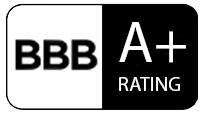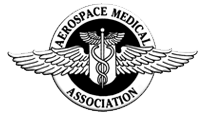The initial presentation of a sleep disorder requires an evaluation be performed, by your private physician, to establish eligibility for FAA medical certification.
This includes but is not limited to:
- Insomnia
- Sleep Apnea
- Narcolepsy
- Restless Leg Syndrome
- The use of sleep aiding medication or devices.
Evaluations must be accomplished in compliance with a specific FAA protocol.
Authorization should be obtained from the Aeromedical Certification Division of the FAA in Oklahoma City. In most cases, Aviation Medical Examiners (AME’s) cannot approve certification and will defer your application to Oklahoma City FAA. The deferral process usually takes 4-6 months without our service.
We can help!
We have helped thousands of pilots with this process.
We work directly with your physicians and the FAA to assure compliance with FAA protocols and to resolve complex aeromedical certification issues quickly.
Contact us at 405-787-0303 or via E-Mail to confidentially discuss the details of
your case and to establish your eligibility for FAA Medical certification.
There is no charge for an initial consultation.
Apnea
Sleep Disorder Glossary | FAA Sleep Disorder Protocol | Obstructive Sleep Apnea
| 1. | Do not go to bed until you are drowsy. Many people go to bed before they are sleepy in an attempt to catch up on lost sleep time. The problem is, they don’t sleep, but end up worrying about their daily issues. Delaying sleep until drowsiness increases the chances of falling asleep and strengthens the association between bed and drowsiness. |
| 2. | Go to bed and get up at the same time. Maintaining a consistent schedule is one of the important time cues for the 24-hour circadian sleep-wake rhythm. |
| 3. | Do not take naps. Problem sleepers should avoid this. |
| 4. | Reduce or eliminate the use of alcohol. Do not drink alcohol later than 3 hours before bedtime. |
| 5. | Reduce or eliminate the use of caffeine. Do not use caffeine within 6 hours of bedtime. |
| 6. | Reduce or eliminate the use of nicotine. Do not smoke within 4 hours of your bedtime. |
| 7. | Exercise regularly, but avoid strenuous physical exertion after 6:00 p.m. |
| 8. | Eat a light carbohydrate snack before bed (crackers or an apple). |
| 9. | Adjust the sleep environment so that the temperature is comfortable and there are minimal levels of light and noise. |
| 10. | Remove all work or reminders of stressful things from the bedroom. The bedroom should be reserved for sleep, sex or other relaxation. |
American Academy of Sleep Medicine | Desynchronosis | Melatonin



